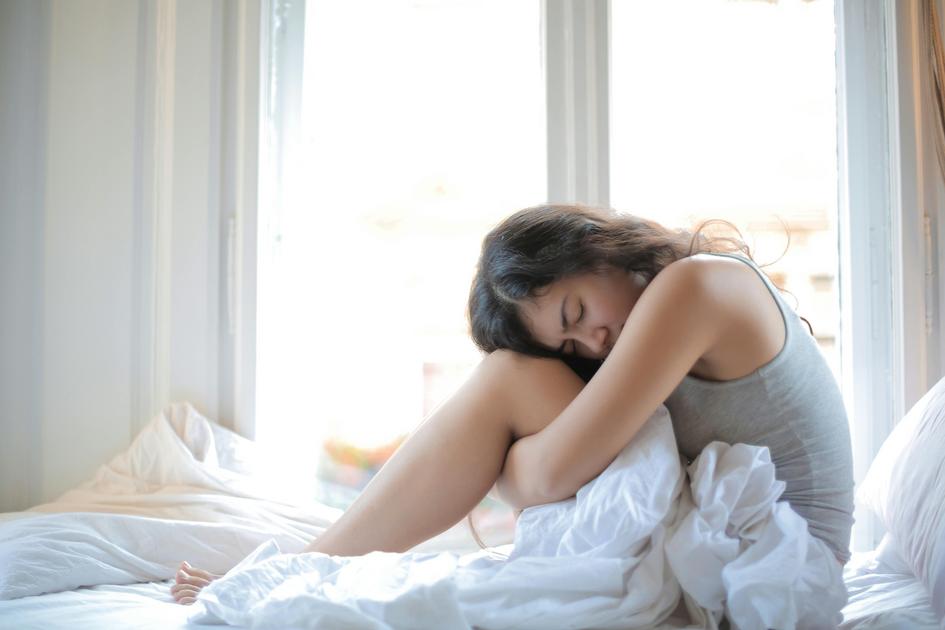Are you a woman struggling with anxiety and sleepless nights? You might be surprised to learn that melatonin use is increasing anxiety and poor sleep in women. This natural sleep aid, often seen as a go-to solution, might have unintended consequences that impact your well-being. In this article, we will delve into the effects of melatonin, its influence on mental health, and alternative ways to find peace and restful sleep.
Understanding Melatonin: The Sleep Hormone
Melatonin is a hormone produced by the pineal gland in the brain. Its primary function is to regulate the sleep-wake cycle, signaling to your body when it’s time to rest. Many people use melatonin supplements to help with insomnia or to adjust their sleep patterns, especially when navigating the stresses of modern life. However, while melatonin is often seen as a natural sleep aid, its increasing popularity among women has raised questions about its overall effectiveness and potential side effects.
Why More Women Are Turning to Melatonin
Many women in their 30s face a range of challenges including hormonal changes, stress, and lifestyle pressures that can interrupt sleep. These factors often lead them to seek solutions for better sleep, hence the rising popularity of melatonin supplements. The convenience of a pill can be enticing, especially after long nights spent tossing and turning.
For some, the allure of a quick fix can overshadow the need for a more holistic approach to sleep management. It’s important to remember that while on the surface melatonin seems like a harmless solution, it might not suit everyone and could potentially worsen anxiety or other sleep issues for some users.
The Connection Between Melatonin and Anxiety
Studies suggest that melatonin isn’t just linked to sleep; it also interacts with various factors that manage stress and anxiety levels. In fact, some women report an increase in anxiety after starting melatonin supplements.
Increased reliance on melatonin can lead to confusion about whether the body is truly getting quality rest. Relying on an external source of sleep aid may inadvertently disrupt the natural production of melatonin in the body, contributing to a cycle of anxiety when it’s time to sleep. For those already battling anxiety, this can feel like a snowball effect, making it vital to explore whether melatonin is truly beneficial in their unique situations.
How Melatonin Affects Sleep Quality
Melatonin’s impact on sleep quality varies significantly among individuals. While some women experience deeper, more restful sleep, others may find that their sleep becomes fragmented after starting melatonin. This is especially true if melatonin is taken at irregular times or in higher doses than recommended.
When melatonin alters the sleep pattern, it can lead to what experts call sleep inertia, a term denoting that groggy feeling one might wake up with after a night of poor quality sleep. Inadequate rest can result in a cascading effect, where the woman may become more dependent on relying on melatonin, leading to longer-term anxiety and sleep disorders.
Are There Alternatives to Melatonin?
Yes, there are various alternatives to melatonin that women can consider. Natural remedies, lifestyle changes, and relaxation techniques can sometimes provide a more gentle and effective approach.
Here are some alternatives:
- Herbal Supplements: Options like valerian root, chamomile, and passionflower may help promote relaxation.
- Cognitive Behavioral Therapy for Insomnia (CBT-I): This therapy helps tackle thoughts that hinder sleep quality.
- Mindfulness and Meditation: Practicing mindfulness can significantly reduce anxiety and improve sleep through focused relaxation.
It’s important to consult with a healthcare provider before starting any new supplement or therapy, as they can guide on what’s best for your specific needs.
Recognizing the Signs of Sleep Disorders
Understanding the signs of sleep disorders is essential for early intervention:
- Difficulty Falling Asleep: If it consistently takes more than 30 minutes to fall asleep, it may indicate a problem.
- Waking Up Frequently: Waking up multiple times can disrupt the sleep cycle, preventing restfulness.
- Daytime Fatigue: Pregnant difficulties with alertness during the day can stem from poor sleep.
By recognizing these signs, women can take proactive steps, whether auditioning a new routine or seeking professional help. A lasting change should focus on improving not just sleep quantity, but sleep quality as well.
The Role of Hormones in Women’s Sleep
Hormonal fluctuations can significantly impact a woman’s sleep cycle. From the menstrual cycle to menopause, hormonal changes affect how and when women sleep. For example, research indicates that certain phases of the menstrual cycle can provoke insomnia or difficulty sleeping. Similarly, during menopause, decreased production of estrogen may lead to insomnia.
Understanding these changes helps women pinpoint potential root causes of their sleep challenges. By considering hormonal health as a component of sleep wellness, tailored strategies such as balanced nutrition, physical activity, and stress management can support better sleep overall.
Creating a Sleep-Friendly Environment
Your sleep environment plays a crucial role in your ability to rest. To cultivate a calming space, consider the following:
- Darkness: Ensure your room is dark, perhaps with blackout curtains to promote melatonin production.
- Quiet: Minimize noise with white noise machines or earplugs.
- Comfort: Invest in a good-quality mattress and pillows that provide the support you need.
Taking the time to enhance your sleep space can renew your relationship with sleep. Remember, the goal is to create a proactive, welcoming environment that signals to your body it’s time to rest.
Emotional Well-Being and Sleep Patterns
Your emotional state deeply influences sleep. When anxious thoughts creep in, they can keep you wide awake, wrestling with your worries in the dark. Conversely, adequate restorative sleep can enhance emotional resilience.
Maintaining a good sleep pattern isn’t merely about rest; it’s also a form of self-care. Taking steps like journaling, talking about your feelings, and practicing gratitude can help reduce anxiety, making sleep calmer and less interrupted.
Finding Peace: Steps to Better Sleep and Reduced Anxiety
Improving sleep is within your grasp, and it often begins with small, manageable steps. Here are some suggestions:
- Establish a Routine: Try going to bed and waking up at the same time each day.
- Limit Screen Time: Reducing exposure to screens before sleep helps in maintaining a natural sleep cycle.
- Prioritize Relaxation: Incorporate activities that you find calming such as reading or taking a warm bath.
These techniques can help build a better relationship with sleep, creating a sense of comfort and rhythm in your life. If you are looking for ways to tackle your sleep challenges and anxiety through practical solutions, see here how many women are solving this without heavy medications.
Embrace the fact that improvement in your sleep and anxiety is possible! With patience and the right approach, you can rediscover the peace of restful nights like many women have already done. Follow the steps and trust in your journey towards restoration and comfort—the path to improved sleep is waiting just for you.







